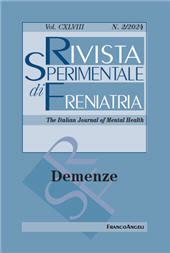Rispetto dell'autonomia, rispetto dell'umanità : l'etica di fronte alle demenze
63-89 p.
Rispettare le persone significa, prima di tutto, rispettare la loro autonomia, non solo nell'ambito dell'etica medica che ha abbandonato l'antico paradigma paternalistico. È proprio l'autonomia a essere progressivamente erosa nelle diverse forme di demenza: il paziente diventa incapace non solo di far fronte alle normali esigenze della vita quotidiana, ma anche di prendere le decisioni che riguardano la sua salute. Una delle questioni più controverse è quella del peso da attribuire alle disposizioni anticipate di trattamento: alla tesi secondo la quale a esse va riconosciuto un valore fortemente vincolante, proprio perché espressione dell'autonomia che c'era e adesso è perduta, si contrappone quella di un bilanciamento che prenda in considerazione anche i desideri e le preferenze che il paziente continua a esprimere e dai quali dipende il suo benessere. [Testo dell'editore].
Respecting people means, first and foremost, respect for their autonomy, not only in the context of medical ethics that has dismissed the old paternalistic paradigm. It is precisely autonomy that is progressively eroded in the various forms of dementia: the patient becomes unable not only to cope with the normal demands of daily life but also to make decisions that concern his or her health. One of the most controversial issues is that of the weight to be given to advance directives: the argument that they should be accorded a strongly binding value precisely because they are an expression of the autonomy that existed and is now lost is countered by that of a balance that also takes into account the wishes and preferences that the patient continues to express and on which his or her well-being depends.
Are there other dimensions of humanity that, along with autonomy, have value and deserve respect? A positive answer to this question requires a more nuanced reflection on issues such as the prereflexive dimension of existence, the role of relationships, the principle of equality, and the responsibilities of care that correspond to the different stages of the progression of the disease. [Publisher's text].
Fa parte di
Rivista sperimentale di freniatria : la rivista dei servizi di salute mentale : CXLVIII, 2, 2024-
Articoli dello stesso fascicolo (disponibili singolarmente)
-
Informazioni
Codice DOI: 10.3280/RSF2024-002005
ISSN: 1972-5582
PAROLE CHIAVE
- autonomia, decisioni di fine vita, demenza, dignità, miglioreesse, rispetto
- autonomy, end-of-life decisions, dementia, dignity, best interests, respect


